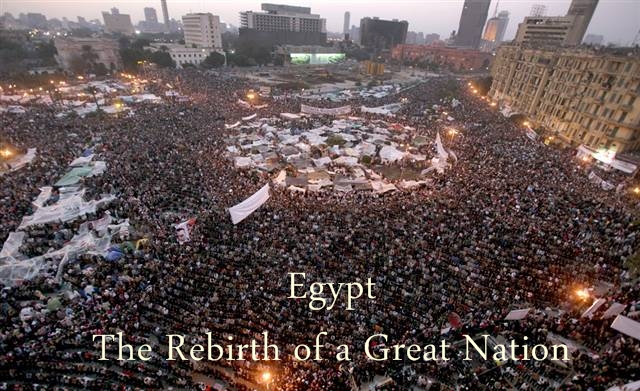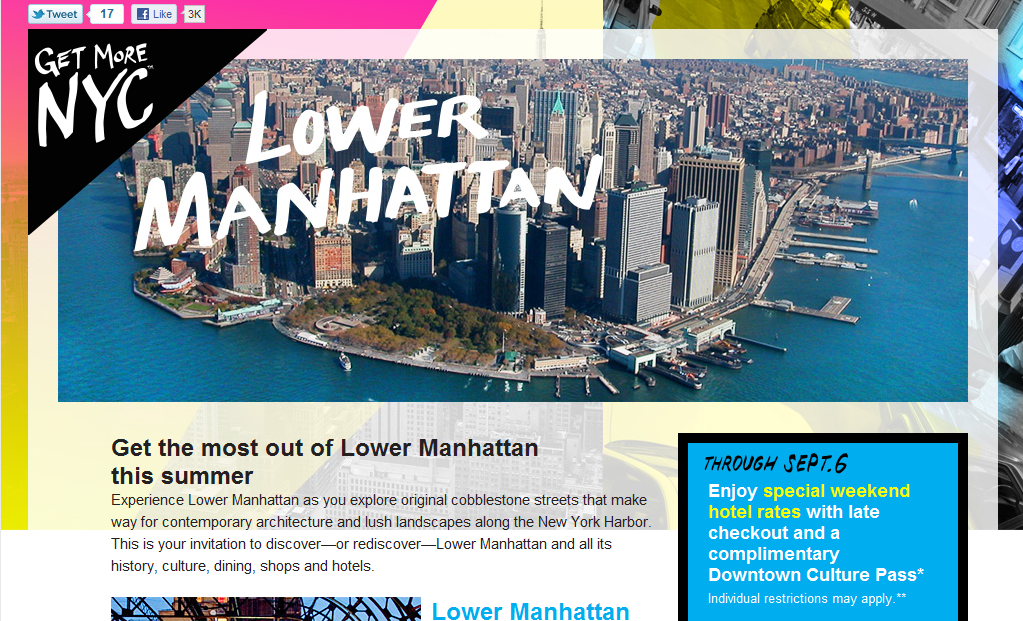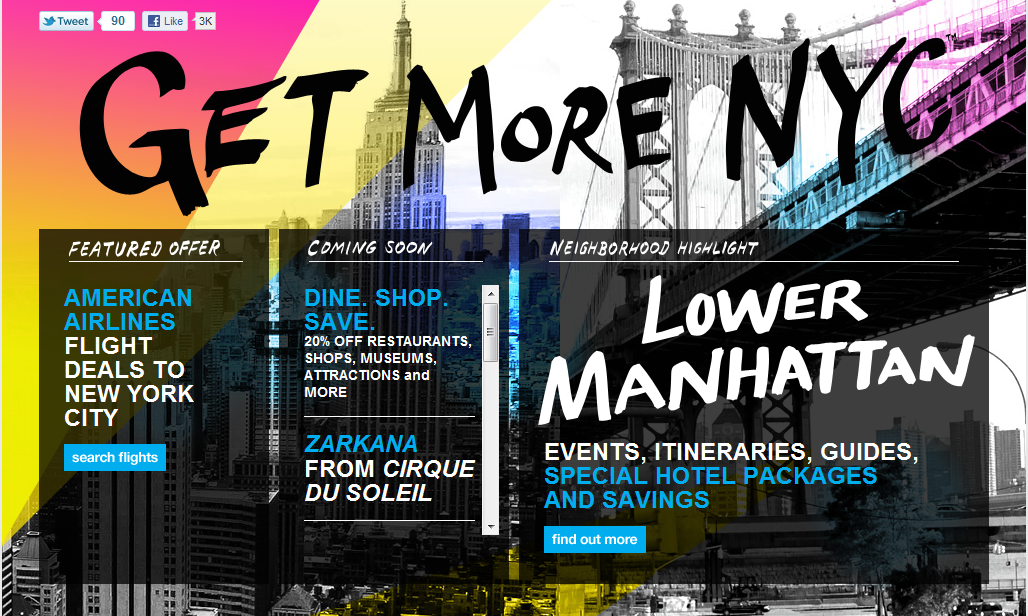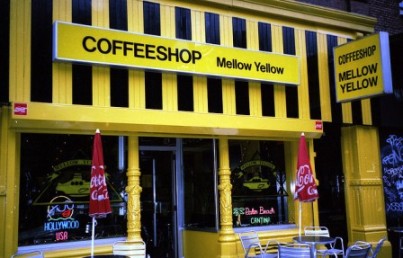Destination Marketing & Reputation Management
Brand image is everything when it comes to tourism. No matter how beautiful and attractive a destination is, if the travelers have doubts especially regarding their safety, then they will most probably choose one of the competitors.
Many countries in the world face a variety of issues, either one-off or continuous, externally sourced or internally. When the country's economy however relies heavily on tourism then it surely needs to be proactive and safeguard its reputation, so that it can minimize the effects and protect its tourism industry and therefore to some extent its economy.
Unfortunately bad news never stop surfacing, so it is wise for especially tourism reliant destinations to have a mechanism in place that will not only allow them to address that issue affecting them more effectively, but also manage the accurate dissemination of information both internally and externally as per the accuracy and timing.
Political turmoil in North Africa and the Middle East has affected the travel industry in entire countries like Egypt and Jordan. Japan has also witnessed a severe decrease on visitor numbers, following the earthquake, tsunami and nuclear meltdown in March. While Mexico fights to convince USA, its major market that it is safe to visit in general despite all the issued travel warnings, the Netherlands issues a ban on soft drug sales all around the country in order to shed the image of a drug destination.
Mexico
Mexico has recently launched a new marketing campaign to counter its image as a country wracked by drug-related violence and reinvigorate the vital tourist industry after US travel alerts warned Americans of violence south of the border.
Tourism Officials acknowledge the fact that they left a gap in their communication following the events, since for two years they had not addressed the issue. This gap was quickly filled by bad news mainly regarding drug related violence and affected the country's image in their major US market severely. Some of the travel alerts had gone headlining 'If you want to stay alive, don't travel to Mexico' as in March, the Texas Department of Public Safety warned college revellers not to travel to Mexico for spring break with the message: "Stay alive".
[youtube=http://www.youtube.com/watch?v=CtGRKu_pYqE]
Japan
Reshaping travelers' mental images of Japan and other affected countries is going to take considerable amounts of time. Government officials and tour operators in all of these countries are using several methods in attempts to convince would-be travelers that they shouldn't be afraid. What they're trying to do is entice the most adventurous travelers to visit, in hopes they can reassure more nervous friends that these places are, for the most part, perfectly safe. A travel agency in Oregon, led a group of about 85 Americans to Japan. Most will be doing volunteer work in Sendai and other cities that need some cleanup help. But some will just be seeing the sites, because tourism is important for rebuilding the local economy, too. The group is being wined and dined, personally welcomed by U.S. Ambassador John Roos and plenty of Japanese tourism officials. They all recognize the importance of showing that Japan is a safe place for foreign guests. The message the group wants to promote is that Japan as a whole is safe and tourism is alive. The message of real life stories of average people is always more efficient than that of government officials.
The strategy of inviting the hardiest travelers to help signal that all is ok is one being pursued in many countries that have suffered from a recent streak of bad news.
Advertising is important, but "much more powerful is the unsung story — people who have gone over there and told their friends they didn't feel scared," says Shannon Stowell, president of the Adventure Travel Trade Association.
A travel agency in Oregon, led a group of about 85 Americans to Japan. Most will be doing volunteer work in Sendai and other cities that need some cleanup help. But some will just be seeing the sites, because tourism is important for rebuilding the local economy, too. The group is being wined and dined, personally welcomed by U.S. Ambassador John Roos and plenty of Japanese tourism officials. They all recognize the importance of showing that Japan is a safe place for foreign guests. The message the group wants to promote is that Japan as a whole is safe and tourism is alive. The message of real life stories of average people is always more efficient than that of government officials.
The strategy of inviting the hardiest travelers to help signal that all is ok is one being pursued in many countries that have suffered from a recent streak of bad news.
Advertising is important, but "much more powerful is the unsung story — people who have gone over there and told their friends they didn't feel scared," says Shannon Stowell, president of the Adventure Travel Trade Association.
Egypt
Travelers looking for adventure or ways to help out can be "pioneers" that help lead people back into Egypt, says Basem Salah, a tour operator in Cairo. These include not just adventure travelers but travel agents, who are being lured to places like Cairo and Tokyo with free travel packages. "Some countries will offer package tours that are reduced in price," says Jafari, the tourism professor. "This may not attract all the tourists they're looking for, but may bring in people on a budget who always wanted to come." Salah says the major tourist sites in Cairo and the monuments from Aswan to Luxor are perfectly safe. But he recognizes that potential guests will need some convincing. As incentive, he and some others in the local travel industry are offering "revolutionary tours" of recently important sites like Tahrir Square. "Now it is a re-brand that you will also see the Egyptians who made the revolution," Salah says. "It's not going to be monuments only, but the revolution and freedom. We will have people who participated in revolution coming to visit you."
Salah and a number of other Egyptian tour operators are partnering with nongovernmental organizations to put together packages aimed at bringing over volunteers. In addition to sightseeing, they might spend part of their visit working with children at a cancer rehab center, or teaching deaf women to build a business by turning rice stalks into craft paper.
The hope is not just to convince people willing to come over at a difficult time to come back, but to get them to convince their friends that Egypt is a safe place to visit now. Word of mouth is the best weapon the travel business has to convince people that things aren't as dangerous as they may look on the news.
Like a certain streak of politician, travel industry officials are fond of blaming the media for showing relentlessly negative images. "I hate to blame the media," says Dozono, a tour operator in Portland, "but they go from one disaster to another, and they don't show the recovery. They only show the damage, and people think it's not safe to go there."
On this point exactly, the destination's tourism officials' role is to feed the appropriate content to the media and their partners in order to ensure the accurate dissemination of information.
"Now it is a re-brand that you will also see the Egyptians who made the revolution," Salah says. "It's not going to be monuments only, but the revolution and freedom. We will have people who participated in revolution coming to visit you."
Salah and a number of other Egyptian tour operators are partnering with nongovernmental organizations to put together packages aimed at bringing over volunteers. In addition to sightseeing, they might spend part of their visit working with children at a cancer rehab center, or teaching deaf women to build a business by turning rice stalks into craft paper.
The hope is not just to convince people willing to come over at a difficult time to come back, but to get them to convince their friends that Egypt is a safe place to visit now. Word of mouth is the best weapon the travel business has to convince people that things aren't as dangerous as they may look on the news.
Like a certain streak of politician, travel industry officials are fond of blaming the media for showing relentlessly negative images. "I hate to blame the media," says Dozono, a tour operator in Portland, "but they go from one disaster to another, and they don't show the recovery. They only show the damage, and people think it's not safe to go there."
On this point exactly, the destination's tourism officials' role is to feed the appropriate content to the media and their partners in order to ensure the accurate dissemination of information.
Lower Manhattan 9/11
A new large-scale tourism campaign will help drive more visitors to Lower Manhattan -- spotlighting the area’s remarkable recovery in the nine years since the 9/11 attacks. Beginning this month the global initiative will promote downtown neighborhoods, restaurants, shops, museums, and open spaces among local and international tourists in New York City. The campaign will include new tour itineraries, special offers at local hotels, multimedia advertisements, and discounts at shops, attractions, and the new “Downtown Culture Pass.”
Announced by Mayor Michael Bloomberg, the NYC & Company-designed campaign is launching in anticipation of a major tourism surge downtown -- where the 10th anniversary of 9/11 already is drawing scores of visitors to the World Trade Center area.
“In less than four months time, the eyes of the world will be on Lower Manhattan, as we commemorate the 10th anniversary of 9/11 and open the Memorial,” said Bloomberg. “An important part of the story of 9/11 is how Lower Manhattan has come back in the past 10 years. Today Lower Manhattan is one of the most vibrant neighborhoods in New York City. Our new campaign will help ensure visitors from around the world know about that vibrancy and have an opportunity to take advantage of all that Lower Manhattan has to offer.”
Beginning this month the global initiative will promote downtown neighborhoods, restaurants, shops, museums, and open spaces among local and international tourists in New York City. The campaign will include new tour itineraries, special offers at local hotels, multimedia advertisements, and discounts at shops, attractions, and the new “Downtown Culture Pass.”
Announced by Mayor Michael Bloomberg, the NYC & Company-designed campaign is launching in anticipation of a major tourism surge downtown -- where the 10th anniversary of 9/11 already is drawing scores of visitors to the World Trade Center area.
“In less than four months time, the eyes of the world will be on Lower Manhattan, as we commemorate the 10th anniversary of 9/11 and open the Memorial,” said Bloomberg. “An important part of the story of 9/11 is how Lower Manhattan has come back in the past 10 years. Today Lower Manhattan is one of the most vibrant neighborhoods in New York City. Our new campaign will help ensure visitors from around the world know about that vibrancy and have an opportunity to take advantage of all that Lower Manhattan has to offer.”
 In tandem with the new campaign is a new welcome program at John F. Kennedy International Airport’s Terminal 4, which will debut in June with posters, wall clings and column wraps showing imagery of New York City with a particular emphasis on Lower Manhattan. The campaign will encourage visitors to stay in Lower Manhattan, and, for those who stay elsewhere, it will encourage them to travel downtown by mass transit.
Tourism to New York City’s five boroughs reached record levels in 2010 with 48.7 million visitors and $31 billion in visitor spending. NYC & Company -- the official marketing, tourism and partnership organization for the City of New York -- estimates that the city will achieve Mayor Bloomberg’s goal 50 million annual visitors by 2012.
In tandem with the new campaign is a new welcome program at John F. Kennedy International Airport’s Terminal 4, which will debut in June with posters, wall clings and column wraps showing imagery of New York City with a particular emphasis on Lower Manhattan. The campaign will encourage visitors to stay in Lower Manhattan, and, for those who stay elsewhere, it will encourage them to travel downtown by mass transit.
Tourism to New York City’s five boroughs reached record levels in 2010 with 48.7 million visitors and $31 billion in visitor spending. NYC & Company -- the official marketing, tourism and partnership organization for the City of New York -- estimates that the city will achieve Mayor Bloomberg’s goal 50 million annual visitors by 2012.
Netherlands
Amsterdam attracts more than 3.5 million foreign tourists per year, many of whom are drawn to the coffee shop culture and promise of being able to easily and legally obtain marijuana. However, the coffee shop cannabis trade will soon come to an end since the Dutch government plans to stop drug tourism by forcing coffee shops to become private clubs that only sell to Dutch citizens that show proof of identification. The city of Amsterdam, where most tourists go, is against the decision. The outcry from critics has been deafening, as it is anticipated that the anti-tourist marijuana law will cost The Netherlands millions of pounds annually in lost revenue. Moreover, there is concern that the law will push the drug trade underground again, as Dutch residents will likely take to selling marijuana to tourists at inflated rates.
"The cabinet expects that the closure of coffee shops to foreign drug tourists will result in that they no longer travel to the Netherlands for the sale and consumption of cannabis," the Dutch cabinet said in the statement. "After all, for many of them applies that they can use the existing illegal market in their own country. Nevertheless will the possible side effects of these measures be monitored closely and adequately addressed by the police, judiciary, and administration."
Sources: www.npr.org, wireupdate.com, www.lowermanhattan.info, www.telegraph.co.uk
The city of Amsterdam, where most tourists go, is against the decision. The outcry from critics has been deafening, as it is anticipated that the anti-tourist marijuana law will cost The Netherlands millions of pounds annually in lost revenue. Moreover, there is concern that the law will push the drug trade underground again, as Dutch residents will likely take to selling marijuana to tourists at inflated rates.
"The cabinet expects that the closure of coffee shops to foreign drug tourists will result in that they no longer travel to the Netherlands for the sale and consumption of cannabis," the Dutch cabinet said in the statement. "After all, for many of them applies that they can use the existing illegal market in their own country. Nevertheless will the possible side effects of these measures be monitored closely and adequately addressed by the police, judiciary, and administration."
Sources: www.npr.org, wireupdate.com, www.lowermanhattan.info, www.telegraph.co.uk

COMMENTS
New Marketing Campaigns- Listen, Engage & Inspire! | abouTourism
[...] & Inspire! Mexico Tourism Board has just launched a new marketing initiative as part of a reputation management framework, incorporating user generated content to build trust and change perceptions in its [...]
New Marketing Campaigns- Listen, Engage & Inspire! « abouTourism
[...] 28 Nov Mexico Tourism Board has just launched a new marketing initiative as part of a reputation management framework, incorporating user generated content to build trust and change perceptions in its main [...]